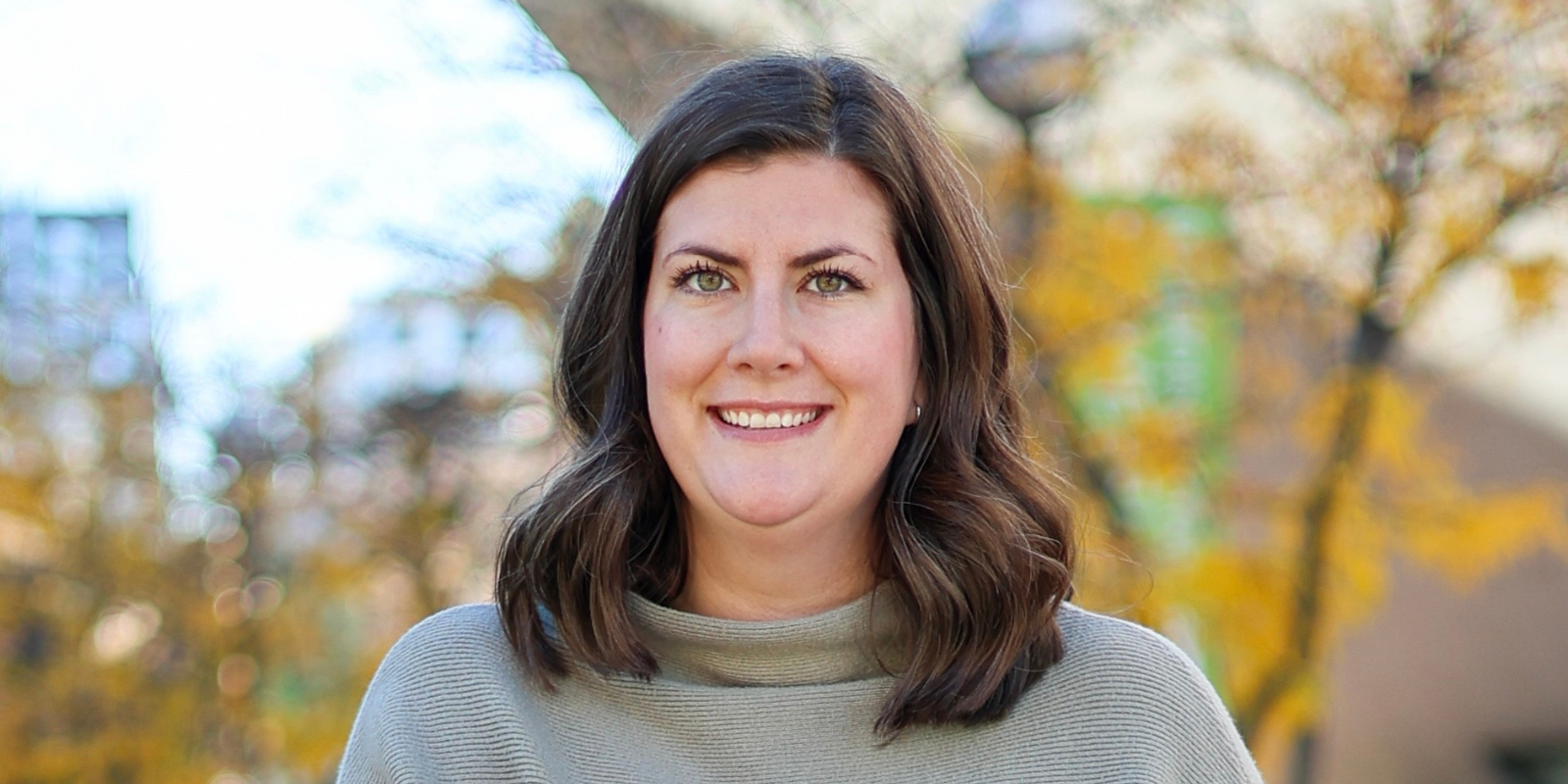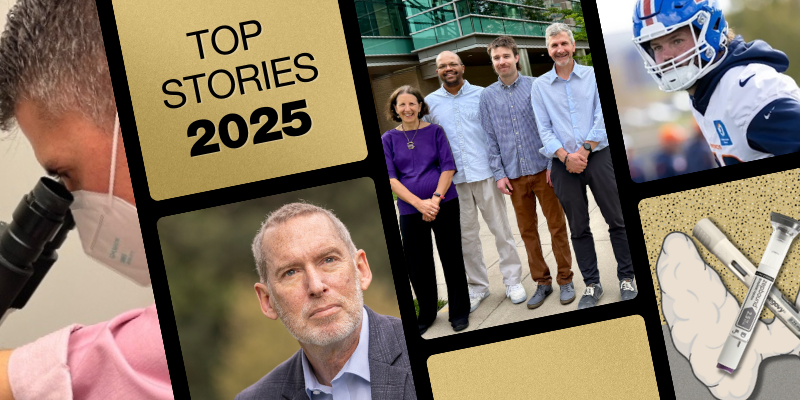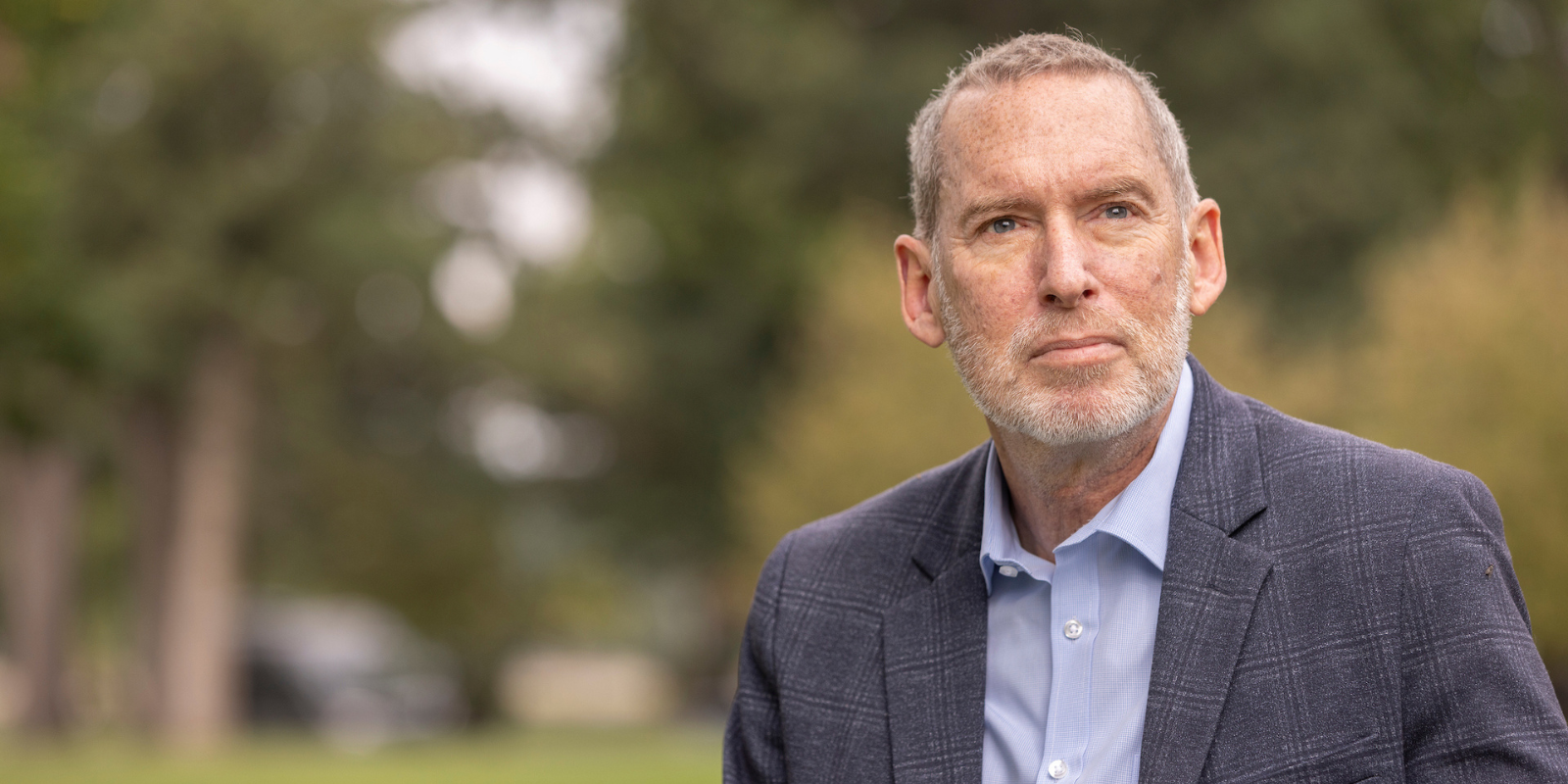Dianne Primavera wouldn’t take no for an answer.
When she was diagnosed with breast cancer at age 38, after finding a lump that turned out to be malignant, Primavera was a mother to two young girls.
“The doctor put his hand on my right shoulder and told me I had breast cancer, and that I would only live another five years,” remembers Primavera, who in 2019 was elected lieutenant governor of Colorado with Governor Jared Polis. “I couldn’t imagine leaving my daughters for anybody else to raise, and I told him, ‘No, I really can’t accept that.’”
Primavera’s quest to beat her cancer led her to three other oncologists, all of whom told her that her disease was too aggressive, and that her age was working against her, as cancer grows faster in younger people. She had almost given up hope when a friend asked if she had ever met with University of Colorado Cancer Center member William Robinson, MD.
“I made an appointment with him, and I said, ‘You know, Dr. Robinson, every oncologist, every radiologist, everyone I've talked to, tells me that I won't be here in five years. But I have to be here in five years; I have to raise my kids.’” Primavera says. “And he said, ‘Oh, hell, Dianne, you're healthier than 95% of the doctors in this hospital. Let's make you well.’”
A life-saving medication
Primavera switched her treatment to Robinson, who scheduled her for surgery and put her on tamoxifen, a hormonal therapy for breast cancer. Additionally, Primavera did her own research into everything from the benefits of vitamins and exercise to the positive effects of visualization. Ten years after she first saw Robinson, there was no evidence of cancer left in her body.
“Was it the Tamoxifen that saved me? Was it Dr. Robinson who gave me the hope? Was it the combination of the vitamins and Dr. Robinson and the hope and a great family and wonderful friends?” Primavera says. “Was I lucky? I don't know. But I want everybody to have the same opportunity that I had.”
From patient to advocate
Primavera eventually developed and was successfully treated for three other cancers, including cervical cancer and two skin cancers, which only strengthened her resolve to advocate for other cancer patients in her public life. Prior to being elected lieutenant governor, she served as Colorado State Representative for the 33rd House District from 2007–11 and 2013–17, and in each term, she helped pass legislation that helped people more effectively get screened and treated for cancer.
Her work included passing bills that ensured insurance would cover mammograms for women and men regardless of age; that allowed parents to get the HPV vaccine for their children and have it covered by Medicaid or private insurance; that made it easier for women to donate cord blood for cancer treatment after giving birth; and that put oral medications at the same out-of-pocket costs as IV treatments. A strong supporter of clinical trials, Primavera also passed a bill that made sure patients couldn't be denied coverage from their health insurance plans if they chose to participate in clinical trials.
“It used to be that insurance plans would throw them off because they thought they'd wind up incurring more costs and having more side effects,” she explains.
Roles at the Capitol and CU Cancer Center
Primavera also formed a cancer caucus within the legislature to educate other legislators and the general public about the disease, and she served as CEO of breast cancer foundation Susan G. Komen Colorado from 2017 to 2018. She stepped down from that position to run for public office, but her advocacy continues at the Capitol — she is working to create a medical financial partnership pilot program to address financial toxicity among people with chronic illnesses such as cancer — as well as the CU Cancer Center, where she serves on the Community Advisory Council (CAC).
Part of the CU Cancer Center’s Office of Community Outreach and Engagement, the CAC works to close the gap in health disparities and reduce the incidence and mortality rates from cancer and other diseases. The CAC engages with community members across the state to improve knowledge and awareness of cancer risk factors, screening services and treatment options. In addition to Primavera, its membership includes representation from the Colorado Department of Public Health and Environment, the Colorado Cancer Coalition, High Plains Community Health Center, Center for Health Progress, and the Colorado Black Health Collaborative.
“Sometimes people in science and academia and government are accused of being in an ivory tower — the perception is that they sit away from the populations that they're supposed to serve and make decisions that are irrelevant,” Primavera says. “Reaching out to the community and making sure that we're meeting their needs is really important in cancer treatment, and the Community Advisory Council shows the CU Cancer Center’s commitment to making sure that what they do really reaches the populations they serve.”
Evelinn Borrayo, PhD, associate director for community outreach and engagement at the CU Cancer Center, says having Primavera as part of the CAC is a huge advantage, given her status as a survivor as well as a government figure.
“It's very beneficial in terms of being a voice for all things cancer, because not only is she a survivor, but she has also been involved in legislation,” Borrayo says. “It's really hard to make it more affordable for people to access care. Oncology services are expensive even if you are insured, but if you’re uninsured or underinsured, you end up paying quite a bit of money for treatment. She has been an advocate around that, and she has also been an advocate in other areas like prevention and passing legislation on taxing tobacco products. She was also key in expanding Medicare and Medicaid coverage for clinical trials participation, which is something she worked with the cancer center on quite closely.”
‘Don’t lose hope’
Thanks in large part to better screening and prevention efforts, the American Cancer Society reported in January that the risk of dying from cancer in the U.S. has fallen 32% over the past 28 years. As lieutenant governor and as a member of the CAC, Primavera plans to keep working on behalf of all Coloradans to make the numbers fall even further.
“It's really important that people don't lose hope. When things go bad is when the angels in your life come out, and they surround you,” she says. “Dr. Robinson was one of my angels, and I have so many others. There are so many incredible doctors, there's so much research going on, there are so many great clinical trials — if someone is diagnosed, just don't lose hope.”



